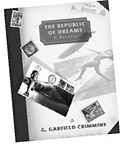If I say that Nathan Englander is the heir to the kind of storytelling practiced by Isaac Bashevis Singer, that the rhythms of his prose recall Bernard Malamud and Grace Paley, that certain of his stories have all the force of Chekhov, then I am not lying. In a way it’s unfortunate that all I can do to communicate how much I liked Englander’s debut book, a collection of short stories called For the Relief of Unbearable Urges, is to compare him to other writers. For to do so suggests that his talents are somehow derivative, and he is fully his own writer. Englander, at 29, seems precariously young to have got hold of the kinds of difficult truths he conveys, but I’m not going to question it. I’m just going to reread these stories again and again.
For the Relief of Unbearable Urges by Nathan Englander (Knopf, $22)
In these stories, people are pushed by circumstance into extraordinary situations, and because these people are for the most part Jews, the stories are those of a faith tested and stretched, of people forced to resort to unusual means. In the fable-like “The Tumblers,” ultra-orthodox Jews become acrobats—breaking all sorts of Jewish laws—in order to escape the death camps. The hapless rabbi in “Reb Kringle” puts on a Santa Claus suit once a year in order to make ends meet. Gitta, of “The Last One Way,” considers hiring a hit man to do away with her husband; she has waited 18 years for him to grant her a divorce, and she wants, simply, to be free. “The rabbi wanted to know if there was someone else,” Gitta tells her electrolysist, “if I’d fallen in love, if, God forbid, I was pregnant. The kabbalist, no better. A blessing at the end, much mazal and a healed marriage and a house full of children. Fifty-four years old and wishing me children. And me with a hot flash in the middle.” And, in the stunning title story, a man whose wife spurns him is directed by his rabbi to go to a prostitute.
Yet faith stretched is still faith. Englander, who grew up in New York in what he calls an “orthodox suburban-Jewish terrarium,” intends no indictment of Jewish culture and laws. It is not about religion strangling people, but about how people survive, about the urgency of truth in whatever guise it assumes. When I interviewed the exhausted young author after his recent Seattle reading, he told me, “When I used to worry about people being offended by my stories, I would say, ‘Name me a character who is not flawed, outside of a single biblical figure in the New Testament.’ Everyone is flawed and human. What are the problems in being Jewish and human is what I’m interested in.”
We talked a bit about the idea of the Jewish writer, and not surprisingly, Englander does not cleave to the idea. “You can make these categories if you want, but I believe in fiction that’s functioning and fiction that’s not. I try to write the best fiction I can, so obviously it’s going to be called Jewish fiction, and I have no issue with that. I just don’t want to say it’s rotten fiction but it’s good for Jewish stuff. That, to me, is selling yourself short.” What about Singer, I asked, who is called a great Jewish writer? “You say that and I say that,” Englander countered, “but I don’t know if Singer did. He’s a writer. Those kinds of labels are dangerous to internalize.” The universality of stories, he stressed, is crucial.
To dwell on the Jewish themes is also to miss the other delights of Englander’s collection. Such as his prose—both forceful and restrained—and his attention to the idea of storytelling itself. In the most heartbreaking story, “The Twenty-seventh Man,” a group of Jewish writers in Stalin’s Russia are rounded up to be shot. In their prison cells, pending execution, they argue like Talmud scholars about literature and life. The most venerated writer, Zunser, philosophical about death, observes, “It was time, anyway. He had lived a long life, enjoyed recognition for something he loved doing. All the others who had reached his level of fame had gone to the ovens or were in America. How much more meaningless was success with the competition gone? Why write at all when your readers have turned to ash? Never outlive your language.” In the cell with three successful writers is a clerical error, Pinchas Pelovits, a dreamer and very private writer who has somehow made it onto Stalin’s list. Charged by his renowned cellmates and dizzy with the prospect of death, Pinchas composes a story in his head and reveals it to the other prisoners right before their execution. His story is a marvel, “a shooting star,” declares another prisoner. “A tale to be extinguished along with the teller.” What Englander does here is create a parable about the risks and rewards—no matter how ephemeral—of writing. The risks are clear; the reward may be a private transcendence.
There is but one flaw in For the Relief of Unbearable Urges, and that is the final piece, an autobiographical-style rumination on violence in Israel, where Englander now lives. But this one misstep hardly dims the brilliant constellation he has given us. This is not just a writer to watch; he is a writer to listen to.






